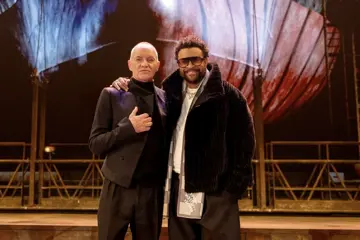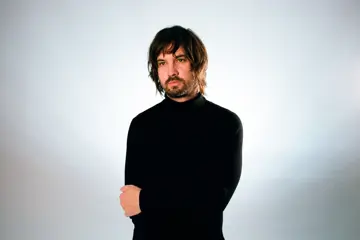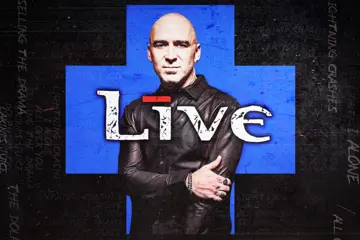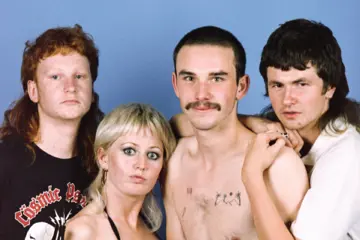 The Lumineers
The LumineersInitially, on the back of their breakthrough 2012 single Ho Hey, The Lumineers went from a new indie-folk trio to an acclaimed worldwide touring act — racking up over 165 million YouTube plays for that pervasive calling card of a song. Wisely, they capitalised on their newfound success by touring their self-titled debut album for the next three-and-a-half years before finally returning home to record its follow-up, Cleopatra. This time, drummer Jeremiah Fraites explains, the band have been careful to ensure they find a better balance between the studio, touring and personal time off the road.
"We started touring on this last March/April, and I think we'll be done touring by the end of this year which would have put us in the industry standard 18-month tour cycle. The first album was double that and too much - though I don't regret it. It made our relationships as a band and as people stronger, but I'd never want to do that again to be honest. Knowing this one will finish at the end of the year gives me a lot of hope and optimism that we'll be able to get back to our homes and the studio, writing new music so we don't burn out from too much touring or writing."
In order to advance their sound from relatively simple, rousing folk to the more textured layers of Cleopatra, the band looked to two titans of progressive music for both sonic and conceptual inspiration.
"Radiohead are also very inventive but no matter how weird a song they release you can still tell it's them."
"I think Radiohead and David Bowie," says Fraites. "They are very different and reinvent themselves, but Bowie was able to find a way to remain very relevant and popular, edgy and futuristic-sounding but also able to connect to a mass audience. I still don't know how he did it. Changes and Heroes have such beautiful parts and changes in them. Radiohead are also very inventive but no matter how weird a song they release you can still tell it's them and that's kind of a dream of mine that no matter where we go, particularly if we continue to grow and evolve our sound, that people can still tell they are Lumineers songs. Talking Heads also, because they've always been interesting and changing their sound."
Don't miss a beat with our FREE daily newsletter
Hand in hand with that desire to present a new sound, the group worked with producer Simone Felice (Felice Brothers, The Duke & The King) to build a sense of space in the music via the use of reverb and a defined approach to mixing and arranging.
"I listen to the radio a lot and tonnes of other music. On the radio I hear a lot of clutter in songs and so the sense of space on our album is very much premeditated. In terms of references there are some Radiohead albums that have a lot of space — like Kid A and the avant-garde composer John Cage who talks about space — not as a negative space but as a positive void, which I find really interesting," says Fraites. "We had a mantra 'up or out,' which meant anything we were putting on a song had to be turned up or taken out. Either it's supposed to be in the song or it's not. We were very selective and we had a lot of filters to get different sounds in. We wanted to maintain that space, which is a compelling part of our music as it can allow imagination to fill in that space. If you clutter the mix with too much it doesn't allow the listener's imagination anywhere to go," he explains.
"It is pretty unreal. Playing there for two nights is pretty surreal and outrageous in my mind," says Fraites, reflecting on the band's upcoming Australian tour where they'll play two nights at the iconic Sydney Opera House. "We've had the pleasure of being able to go to Australia twice. We'd typically land in Sydney and every time and I'd walk past the Opera House and it kind of looks like an alien spaceship that landed and it's one of the most beautiful things I've ever seen. I've got no idea what it looks like inside. For me as an artist and musician, we just played two nights at Madison Square Garden in New York, and honestly, the Sydney Opera House is right up there too," enthuses Fraites.
As for that song that launched their collective career as a band, Fraites is quick to acknowledge the debt they owe to it. "Ho Hey of course wasn't just a small aspect of our lives, it gave us the keys to the world and we have to be forever grateful for that, but to be honest, it never feels like a drag to play every night."















